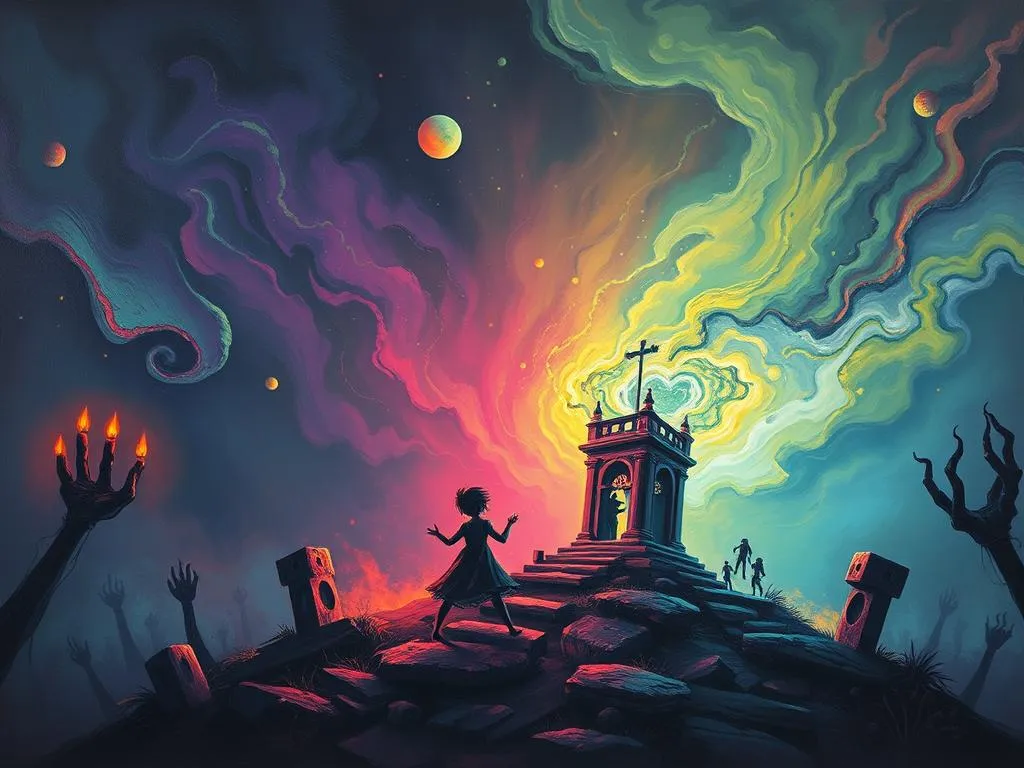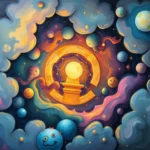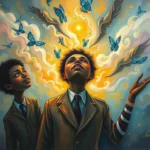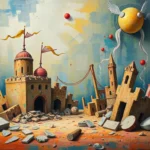
Introduction
Dreams have long fascinated human beings, serving as a window into our subconscious minds. Among the myriad themes encountered in dreams, horror games stand out due to their intense emotional charge and vivid imagery. These dreams often evoke feelings of fear, anxiety, and confusion, leaving dreamers pondering their significance upon waking. The relevance of dreaming about horror games lies not only in the thrill they provide but also in the deeper psychological insights they offer. By exploring these dreams, we can uncover hidden fears, unresolved conflicts, and even aspects of our personalities that we might not confront in our waking lives.
Symbolism and Meaning
When analyzing the symbolism within horror game dreams, we encounter a rich tapestry of meanings. Fear, a predominant emotion in horror games, often symbolizes the unknown or unresolved issues in our lives. The monsters or antagonists in these dreams may represent our internal struggles or external pressures. For instance, a monstrous figure could symbolize a looming problem that we are trying to avoid, while the dark, claustrophobic environments often found in horror games may reflect feelings of being trapped or overwhelmed in our waking lives.
Another common symbol is pursuit. In many horror games, characters are chased by relentless foes, mirroring feelings of anxiety or stress in our daily routines. This pursuit can be a manifestation of fear regarding deadlines, responsibilities, or even interpersonal relationships. The act of running away from danger in a dream may indicate a desire to escape from something that feels threatening, whether it be a job, a relationship, or a personal fear.
The game aspect itself introduces an interesting layer of meaning. Dreams about horror games can suggest that life is being approached as a series of challenges or levels to be overcome. This perspective might indicate a resilient attitude towards life’s difficulties, showcasing the dreamer’s ability to confront and work through fears. However, it can also point to a tendency to treat serious situations lightly, perhaps avoiding deeper issues by framing them as mere obstacles to navigate.
Lastly, the setting plays a crucial role in shaping the dream’s meaning. Dark, abandoned locations typically signify feelings of loneliness or despair, while well-lit, familiar places might suggest that the dreamer feels secure even in chaotic circumstances. Understanding the specific details of the dream environment can provide significant insights into the emotions and experiences influencing the dreamer’s life.
Key Scenarios and Variations
Horror game dreams can manifest in numerous ways, each variation offering unique insights. One common scenario involves the dreamer being trapped in a haunted house or a decrepit building, often filled with ominous sounds and shadowy figures. This setting may symbolize the dreamer’s struggles with their inner demons or unresolved past traumas. The act of exploring these spaces can represent a journey into the self, urging the dreamer to confront buried fears and emotions.
Another variation might involve the dreamer attempting to escape from a relentless pursuer, which can indicate a feeling of being overwhelmed by responsibilities or emotionally charged situations in real life. The inability to escape can reflect feelings of helplessness or being cornered by circumstances beyond the dreamer’s control. In this scenario, the dream encourages introspection and a proactive approach to addressing the sources of stress.
Alternatively, some dreams may involve the dreamer taking on the role of a hero within the horror game, facing challenges head-on and successfully overcoming obstacles. This portrayal can symbolize empowerment and resilience in the face of adversity. Such dreams might indicate that the dreamer possesses the strength and courage to tackle their fears, suggesting a need for self-affirmation and confidence in their abilities.
Additionally, dreams might involve team-based scenarios, where the dreamer collaborates with friends or familiar figures to confront horror elements together. This could symbolize the importance of support systems in navigating life’s challenges. The presence of allies in the dream may reflect the dreamer’s reliance on social connections and the need for solidarity in overcoming fears.
The interplay between life and horror game elements can also lead to scenarios where dreamers find themselves questioning reality, experiencing a blurring of lines between the game and their life. Such dreams may indicate feelings of disconnection or a sense of losing control. By reflecting on these variations, dreamers can gain valuable insights into their emotional states and life circumstances.
Real-Life Connections and Takeaways
Understanding the intricate connections between horror game dreams and real-life situations can lead to profound self-reflection and personal growth. When interpreting these dreams, readers should consider the specific emotions they experienced during the dream. Were you terrified, exhilarated, or empowered? These feelings can serve as indicators of your current mental state and highlight areas that may require attention.
For instance, if you often dream of being pursued, it may be time to reflect on what aspects of your life feel overwhelming. Are there responsibilities you are avoiding? Are there relationships that require honest communication? Identifying these triggers can pave the way for proactive change, allowing you to confront fears rather than run from them.
Dreams of overcoming challenges can be particularly empowering. If you find yourself facing fears with bravery in your dreams, take this as a sign of your inner strength. Reflect on recent challenges you’ve faced and consider how you approached them. Acknowledging your resilience can bolster your confidence, encouraging you to tackle real-life obstacles with the same fortitude displayed in your dreams.
Additionally, the presence of friends or allies in your horror game dreams can signify the importance of social support. If you feel isolated in your waking life, consider reaching out to friends or family members for connection and support. Engaging with others can provide a sense of community and help alleviate feelings of fear or uncertainty.
Lastly, keep a dream journal to document your horror game dreams, noting recurring symbols, emotions, and scenarios. This practice can deepen your understanding of your subconscious mind and reveal patterns that may be affecting your waking life. Over time, you may find that your dreams evolve as you address the issues they represent, leading to a more harmonious and empowered existence.
In conclusion, horror game dreams are more than just thrilling nocturnal adventures; they serve as mirrors reflecting our innermost fears and desires. By exploring their symbolism, recognizing key scenarios, and connecting them to real-life experiences, we can unlock valuable insights into our emotional and psychological well-being. Encourage yourself to engage in personal reflection, and allow these dreams to guide you toward greater self-awareness and growth.







